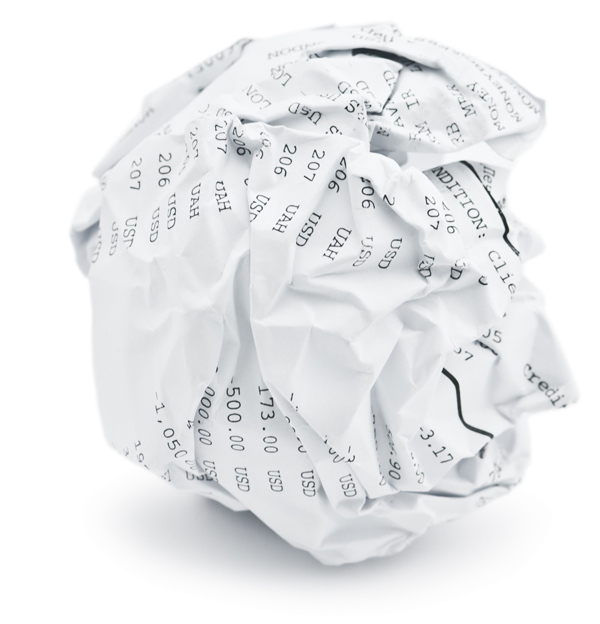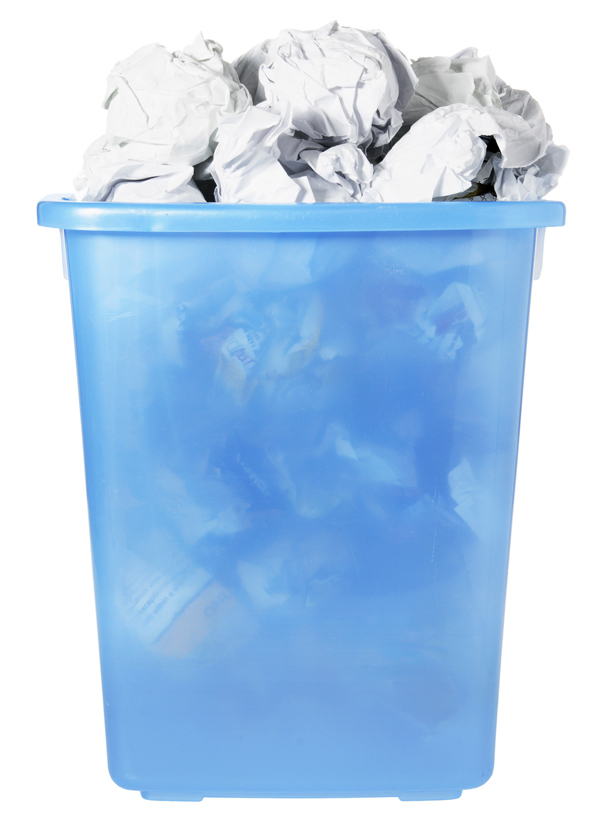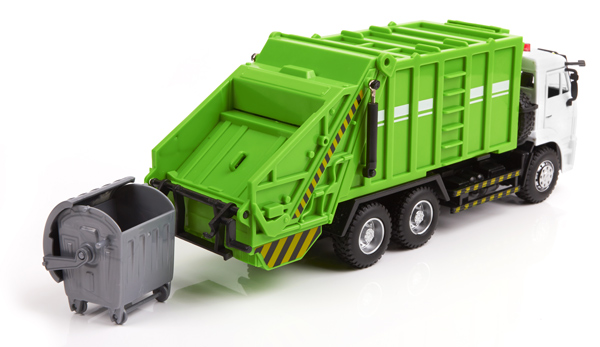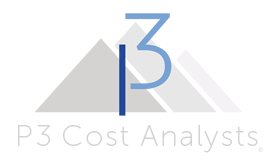Waste Management Audits
Our Customers Save An Average Of 30-40% On Waste and Recycling Overcharges.
Save on Waste Management & Recycling Services
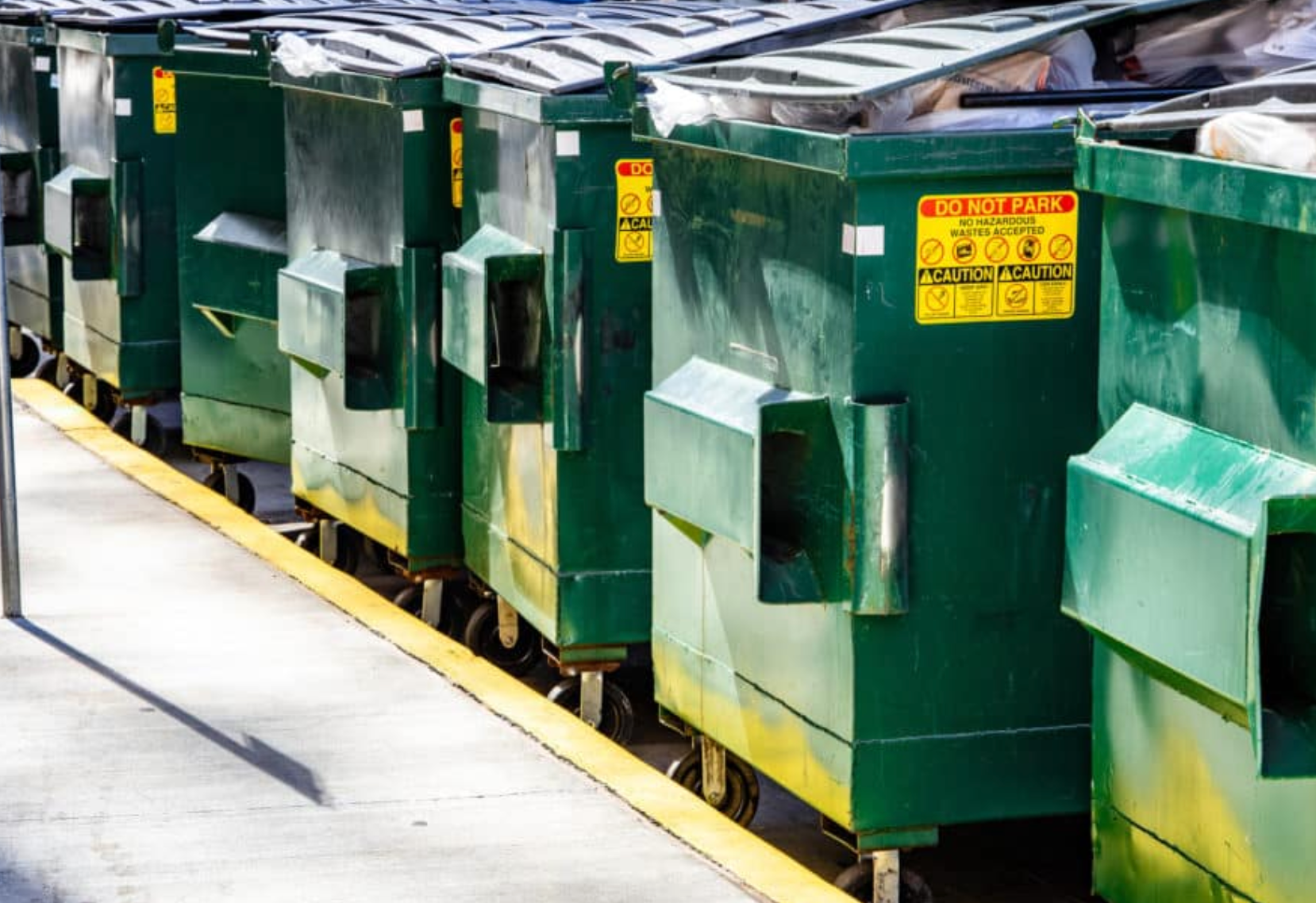
Our team of Waste auditors can help save you money. Our experts are able to find errors and overcharges for our clients over 90% of the time.
Our waste and recycling audit service is designed to maximize your profit and minimize your time.
Below is a list of what we can offer you:
- Billing audits for all types of waste and recycling providers. Including major providers such as Republic, Waste Management, Advanced DisposaL, GFL…and even local providers.
- An evaluation of the cost effectiveness of each and every line item charge on your invoice and your vendor contracts
- A detailed report containing all errors and overcharges, with an explanation of areas of cost savings
- Renegotiation of your current agreements using our decades of expertise and proprietary database of waste and recycling pricing.
- Implementation and improvement of recycling programs where applicable
- Right sizing of equipment and volume usage where applicable
- Implement contract terms and conditions that protect you, not the vendor
- Constant monitoring of current charges occurring in all of your waste and recycling expenses
- Proprietary benchmarking from over 30,000 client locations nationwide
Furthermore, we also offer our waste and recycling issue and service resolution included in our shared savings fee.
Our Clients Have Saved Thousands on Waste Management
"Their experience and expertise has saved us thousands and thousands in a short period of time"
Eric V
Property Manager
"I candidly have never witnessed a relationship that was this easy and this beneficial for both parties"
Greg R
Quick Serve Restaurants
“P3 is a company that is reliably showing us value. They are such a pleasure to work with.”
Storm N
Hotel Group
-
"Their experience and expertise has saved us thousands and thousands in a short period of time"
Eric V
Property Manager -
"I candidly have never witnessed a relationship that was this easy and this beneficial for both parties."
Greg RQuick Serve Restuarants
-
"P3 is a company that is reliably showing us value. They are such a pleasure to work with."
S NolanHotel Group
Complete Expense Auditing Services
Your expenses don't stop at waste and recycling and neither do your potential savings. Our Expense Audit will help you truly understand how your money is spent and where savings are available. In most cases, we can even get your company a refund for past overages.Take Advantage of Third Party Auditing
Overall, your buying power is increased when you involve a third party because companies as a group can receive lower prices versus a single enterprise. Plus the convenience enjoyed by referring sales people, quotes and billing questions to us means you have more time to focus on your business.
Auditing these expenses using a trusted consulting partner is the only way to truly have your expenses verified and reduce these expenses.
We are not haulers. We do not pick up waste. We do not own trucks. We are independent experts whose only objective is to help our clients reduce their waste expenses and increase their service efficiency.
Our team of waste auditors have worked for the big waste and recycling companies and know how to help clients save money in this area.
We average a 35-40% reduction over what you are currently spending. Using data points from over 30,000 client locations and 70 years of combined waste and recycling industry expertise, we go to work on our client’s behalf.
Using proprietary data points from around the country we help our clients get these expenses back in check and improve their bottom line. Furthermore, the average time involvement from our clients is 2-3 hours for the entire engagement. Auditing and reducing your Waste Management, Republic and other waste and recycling bills has never been easier.
Our waste management audit is an incredible value add which our clients love. We are not only saving our clients money, but time as well.
When our clients engage P3 they get all our expertise at their fingertips, and we go immediately to bat working to save our clients money. And as always, if we can’t find savings, there is no fee.
Knowledge is power and at P3, we know costs.
P3 Waste & Recycling Services Auditing:
The Ultimate Guide to Reducing Your Business's Waste & Recycling Costs
The waste and recycling industry is complex, and if you’ve ever been confused about a fee or change in billing rate, you’re not alone.
Between waste vendors’ confusing contractual language and customers not knowing which charges are valid, companies all across the country overpay for waste and recycling without realizing it.
To find the applicable overcharges and invalid fees to reduce your business's surcharge, you need a trained eye. More specifically, you need professionals whose core competency is waste and recycling auditing and billing to thoroughly understand where your business is overpaying.
Let’s take a look at how the waste and recycling industry prices their services, the valid and invalid reasons for fees and changes in billing, and how the P3 Cost Analysts’ Waste Management auditing solution finds real savings for customers.
Waste and Recycling Industry Overview and Pricing
What makes the $40+ billion waste and recycling industry so complex is that there’s rarely set pricing for the services they sell. Sales reps have incentives for selling services at higher prices, which leads to differences in what customers pay depending on their rep. In many cases, people will pay vastly different prices for the same service depending on whether they negotiate using key benchmark data or simply accept their representative's offer.
Even if you sign a contract that you’re happy with at the outset, this price can completely change three, six, or nine months down the line. In most cases, these contracts are three years long. Many of these contracts also have an auto-renewal clause, and if you’re not paying attention, you could get roped into another three years without realizing it.
There are two types of markets for waste: Open Markets and Franchised Markets.
Franchised Markets
In franchised markets, the government has negotiated the prices for business owners in that city or community and contracted with a private waste hauler. The pricing is set by the government. Governments typically negotiate free services for government facilities in exchange for the private hauler receiving the monopoly rights to service the businesses in that community.
Unfortunately, these deals often result in businesses paying well above market rates for their waste and recycling services. The governments negotiating these agreements are not experts in the waste and recycling industry, and, in our experience, the costs passed on to businesses are almost always higher than open market rates.
While businesses cannot negotiate a lower price in these markets, there are often savings to be found due to errors and overcharges, haulers not following the franchise agreement, or options to use alternative and more efficient equipment (like compactors, balers, or other types of dumpsters).
Open Markets:
Open markets comprise the vast majority in the United States. In these markets, the government has let the choice of waste hauler up to the individual business. With this freedom of choice, however, comes responsibility.
Since there’s limited regulation within the waste management industry, vendors can structure their contracts and invoicing to solely benefit themselves. The contract language they use typically allows them to tack on additional fees for whatever reasons they want. Additionally, there’s no effective way to file a formal complaint about these contracts or any unexpected surcharges. Businesses must ‘vote with their feet’ and change haulers - or negotiate themselves to have an impact. However, the complexity of hauler agreements can make it seem impossible to make changes.
Furthermore, each waste market is vastly different. A waste market even one county away could have drastically different pricing depending on the landfill location, local regulations, and a myriad of other pricing concerns. The only way to truly know whether it’s a good deal is to have benchmark pricing data from customer locations all over the country.
So, while open markets can result in better pricing for businesses, they only do so if they are negotiated and handled correctly, and by experts in the industry.
The Problem:
For the average customer, deciphering these charges and understanding the contractual language is almost impossible. Waste and recycling companies know this and are good at making certain fees sound mandatory when, in fact, they are not. Many customers just accept the charges or assume waste and recycling fees are fixed like other business costs. Without experience and proper market information, they lack the negotiating power and simply tend to accept the waste company's charges at face value.
Luckily, there are steps businesses can take to avoid unnecessary fees and overcharges. The most impactful thing they can do is work through a full waste audit led by a professional team. At P3 Cost Analysts, we are experts in the waste and recycling industry, have over 30,000 client benchmark data points across the country, and know exactly what to look for in regards to valid and invalid charges.
Valid Reasons for Fee Increases and Additional Charges
In many cases, the fee increases you see are valid and usually aren’t a cause for concern. However, even valid fee increases can be misapplied and the overall cost burden placed on the customer. Generally speaking, you can expect a standard price increase of 15% per year if you sign a contract as is and don’t take any additional steps - and that is with current inflation rates, which fall at around 3%. As inflation increases you can expect the price increases from haulers to reach an even higher rate.
Fee Increases and Additional Charges
Government Regulation Changes
Some counties and cities have franchise fees for haulers to be able to operate there. These fees then get passed on to customers.
Landfill Price Increases
These happen when landfills, both privately and publicly owned, increase charges and these are passed through to the haulers, who then pass them on to customers.
Labor Cost Increase
When employees get paid more, customers will also pay more. Minimum wage and local labor market conditions all factor into the price of your waste and recycling expenses.
Fuel Cost Increase
As fuel prices rise, waste and recycling companies need a way to offset these additional fees.
While these are legitimate reasons for rising costs, the level increased is not always valid.
Examples
Waste and recycling companies will use legitimate regulations to increase your costs more than their costs have gone up.
Or
The calculation of the cost increase is an internal proprietary process, so you’ll never really know how they arrived at their new number.
Invalid Reasons for Fee Increases and Overcharges
Valid increases are expected to some extent, but there are many invalid reasons waste and recycling companies increase fees or overcharge. Unfortunately, they can raise pricing for any reason they want. These fees haven’t always existed, and the waste management companies seem to keep inventing new fees as the years go on. Most of the fees and overcharges are intentional and a profit motive that, left unchecked, can get out of control.
Fuel Fees
There’s no way to accurately calculate how much fuel companies in the waste industry actually use. Fifteen years ago, there was no fuel fee because it was included in the base rate. When the fuel market exploded about a decade ago, some waste companies’ fuel fees went up 25%+, but then when the fuel market tanked, their fuel charges never went back down, or only dropped by a small percentage.
Recyclable Material Offset Charge
This vague fee is an additional fee often seen for customers that have a recycling service.
Overflow Fees
This fee is added if your lid is propped open too high, even if you have only something small hanging out under the lid. Trucks now have cameras that can take photo evidence of overflows. They’ll even charge you if they are a day late and your bin is overflowing because of it. The problem is not so much the existence of this fee, but the cost and the subjective manner in which it is applied.
Example
If you have an $80/month trash bill and the waste company charges you a $120 overflow fee for having your lid propped open one inch, that’s illegitimate and unnecessary.
Container Maintenance Fees
This is a monthly fee to keep your trash container looking good and acts like a type of insurance for your container. But since the waste company owns the container, this is essentially pointless for the customer. This fee was created by many of the larger haulers over the past few years.
Extra Pickup Charges
If a customer has a busy week, they may need an additional waste pickup. Though some sort of charge is reasonable, the waste companies tend to drastically overcharge these extra pickups. This is because the waste companies’ contracts generally allow them to charge what they want.
Exchange, Removal, and Delivery Fees
If you get a leaky dumpster or need to upgrade to a different size, you’ll likely incur an exchange fee. But what sometimes happens is they’ll charge you for an exchange but also tack on a removal and delivery fee. In reality, the exchange fee is just removal + delivery so being charged for all three is unnecessary.
Overhauling
Some companies will haul waste and recycling to a landfill much farther than they have to go, thus incurring more hauling charges for the customer. This could be because they own the landfill further away and have better margins there, or just want to be able to charge higher haul (distance) rates. Knowing the landscape of the local landfills and your options is paramount to keeping your waste expenses under control.
Misclassification of Waste
Sometimes people may have "regular" waste, yet the vendor classifies it as a liquid or hazardous waste. Whether their classification is valid or not, this means they have to take it to a different part of the landfill where it’s put into a different place than where normal waste goes, incurring an additional charge.
Contamination for Recycling
If you put your recycling in a plastic bag (which is not recyclable), they can charge you $150 for contamination.
How P3 Cost Analysts Find Waste and Recycling Savings for Clients
At P3 Cost Analysts, we have staff who have worked in this industry for decades and know all the intricacies around pricing and contracts. We know the regional minimum amounts that waste and recycling companies will agree to, and we fight to get these prices for our clients.
The best part is our clients don’t pay a cent until we find savings. From there we share in the savings 50/50 each month.
P3 Waste and Recycling Auditing Process:
- Engagement
We gather 3 months of invoices from our clients and a letter of authorization to proceed with the audit. - Audit
We thoroughly go through client invoice and track where we see overcharges or invalid fee increases. If there’s a need, we might visit a client’s site to gather additional information about their waste management services. - Share Our Findings
About 4-6 weeks after our initial meeting, we come back to the client with our findings and recommendations. - Negotiate with Waste Management Vendor
We conduct our negotiation process with the waste vendors in order to procure the best contract agreements for our clients. If the client just signed a new 3-year contract, we can typically still help to modify a contract to meet the client’s needs. - Implementation
Once negotiations are complete, we implement our recommendations and then share in the cost savings with our clients. - Bill Monitoring and Contract Management
During this phase we monitor our client's invoices each month to ensure savings stay intact and vendors honor the agreements and pricing. We have found vendors are constantly violating their own agreements and we monitor and fight off unwarranted price increases and overcharges on our client's behalf. Furthermore, we monitor market conditions and look for ways to keep costs down or drive them lower.
Client Success Examples:
Example 1
We had a client who was in a franchise market which meant they could only work with one waste industry vendor. For this reason, we weren’t able to go through our typical contract negotiation but were able to find savings in other ways.
Our experts recognized that the waste loads the vendor was hauling were much lighter than they should’ve been in comparison to our known standards for the equipment the client was using. We conducted a site visit for the client and realized their waste compactor was not functioning properly. It was only compacting the trash to 1⁄3 of the normal operating range for that piece of equipment, which caused the compactor to show it was full before it actually was.
We were then able to get the equipment fixed, thus increasing the waste loads they were sending each trip by 2.5x. This, in turn, reduced the number of times our client needed their waste vendor to make trips to the landfill.
This improvement ended up saving our client about $20K/year.
Example 2
Our client had 70 locations in the fast-food industry with different waste contracts for each location. About 80% of the locations were already recycling cardboard, but some were not. And the ones that were, were not doing so efficiently.
We decided to set up recycling for cardboard at several locations and reduced the amount of cardboard going to the landfill, thereby making them more green.
This new recycling program generated a couple thousand dollars in savings alone.
We also renegotiated their contracts to get them the lowest price they deserved. All in all, these re-negotiated contracts and other implementations saved the client over $200,000/year.
Example 3
We worked with a medical company that regularly had hazardous materials to dispose of. If there’s a significant amount of blood on something, it has to be hauled away in special bags and containers.
The medical waste portion of the industry is dominated by a couple of vendors, so they’re very aggressive with their pricing tactics.
This particular client was an ophthalmology clinic paying $3,000/month for one box of medical waste hauled off a week. We were able to get their cost down to $300/month (90% reduction), and this was just the initial savings.
Over the long term, we were able to get them to a price point of around $75/month. These savings were generated by leveraging our expertise around benchmarks from what others around the region were paying.
Example 4
We worked with a medium-sized industrial client in California, which happens to be a highly regulated market.
In this case, we were able to reduce their weight cost as well as their base cost.
This was accomplished by removing a series of minimum charges their vendor was applying. Instead of paying a full 5-ton fee per pickup (even when they had much less), they now are charged for an amount much closer to the actual weight of the waste they dispose of.
In total, this client was able to save around $2,000 per month due to our implementations.
Misperceptions about Working with P3 Cost Analysts
Without understanding the work we do, a lot of people think there’s just nothing P3 can do to help them or that our service is “too good to be true.” Our response is “why not give it a shot?”
If we can’t help our clients, then it costs them nothing. But if we do find areas of improvement, they can greatly increase their savings. In more cases than not, there are opportunities to reduce costs and increase efficiencies.
Real Savings are Possible with a Full Waste Management Audit by P3 Cost Analysts
If you’re more than a mom-and-pop type business, the only way you can effectively save on waste and recycling costs is to hire someone in-house that has a tremendous amount of experience in the waste and recycling industry, or you need to outsource to professionals.






